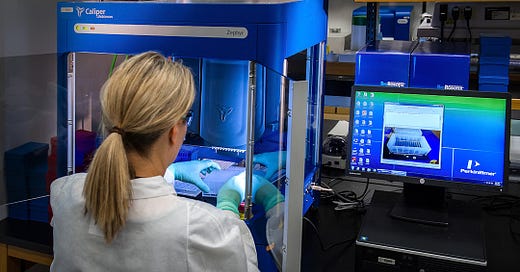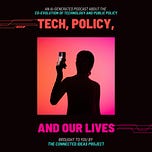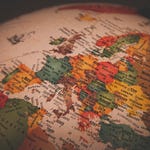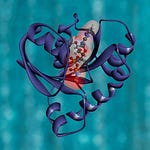I’ve always believed that the process of discovery is as fascinating as the outcomes it yields. It’s not just about the eureka moments but the intricate web of questions, failures, and persistence that lead us there. I have been a fan of the concept of the Nobel Turing Challenge for a while, an idea I first read about in a paper by Hiroaki Kitano. It’s an audacious endeavor to build AI systems capable of producing scientific breakthroughs worthy of a Nobel Prize. This proposal resonated deeply with me, not only because of its boldness but also because it sits at the intersection of so many things I care about—science, technology, and the human spirit of exploration.
Reframing Discovery: From Human Intuition to Machine Precision
I remember the first time I encountered the idea of machines as scientists. It felt like something out of a science fiction novel—machines not just processing data but generating hypotheses, designing experiments, and interpreting results. Kitano’s Nobel Turing Challenge takes this idea to its logical extreme: an AI Scientist that doesn’t just assist but leads the charge in solving some of our most complex problems.
Think about the implications. Traditionally, science has relied heavily on human intuition and creativity. We stumble upon breakthroughs because of accidents, like the serendipitous discovery of penicillin or the misstep that led to conducting polymers. But what if we didn’t have to wait for accidents? What if machines could systematically explore every possibility, every hypothesis, with an unbiased and relentless efficiency that humans can’t match?
Kitano’s vision pushes us to imagine a future where AI fundamentally changes how science is done—not by mimicking human thought but by transcending our limitations. This, in a way, is an embodiment of the concept of polyintelligence, blending AI with automation and the total knowledge of humanity to-date.
The Science of Science
The core of the Nobel Turing Challenge is the idea of the “science of science.” It’s a call to reverse-engineer the discovery process itself. What makes one hypothesis more likely to succeed? How do we prioritize the questions that matter most? These are questions that philosophers like Karl Popper and Thomas Kuhn wrestled with, but Kitano suggests that the answers may lie in computational models, not just philosophical musings.
For me, this concept is both thrilling and terrifying. Thrilling because it promises a level of understanding and acceleration in science that could redefine entire fields. Terrifying because it challenges the very nature of what it means to be a scientist. If machines can outperform the best of us, where does that leave human ingenuity?

A Hybrid Future
Kitano doesn’t envision a world where AI replaces human scientists. Instead, he talks about a hybrid model—a partnership where AI and humans work together. This resonates with my own experience in AI and biotech. The most exciting advances happen when we combine the best of both worlds: human intuition and machine precision. Again, the idea of polyintelligence.
Imagine a lab where AI systems generate thousands of hypotheses, prioritize the most promising ones, and even design the experiments to test them. Human scientists, freed from the drudgery of data collection and repetitive tasks, can focus on interpreting results, asking bigger questions, and ensuring that the work aligns with societal values.
This hybrid approach feels like the natural next step in the evolution of science. It’s not about replacing humans but amplifying what we’re capable of achieving together.
This isn’t even close to just science fiction anymore. In December 2024, Flagship Pioneering announced is new company focused on scientific superintelligence, Lile Sciences. This is not if, but when.
Challenges and Ethical Questions
Of course, this vision isn’t without its challenges. Kitano acknowledges the technical hurdles: building systems that can autonomously generate and test hypotheses, ensuring reproducibility, and creating scalable experimental platforms. But for me, the ethical questions loom even larger.
What happens when AI starts making discoveries faster than we can understand or regulate them? Who gets credit for an AI-driven breakthrough? And perhaps most importantly, how do we ensure that this technology is used for the benefit of all humanity, not just the few who control it?
These are questions we need to grapple with now, not later. The Nobel Turing Challenge isn’t just a technological endeavor—it’s a societal one.

What This Means for the Future
As I reflect on Kitano’s proposal, I’m struck by its audacity. A machine winning a Nobel Prize by 2050? It sounds impossible—until you remember that just a few decades ago, machines were struggling to beat humans at chess. Now they’re mastering games like Go, generating art, and helping us decode the structure of proteins. The last two years have completely changed our expectations for timelines related to AI.
If we can achieve the vision of the Nobel Turing Challenge, the implications are staggering. We could accelerate the pace of discovery in everything from medicine to climate science. We could tackle problems that have eluded us for centuries. And perhaps most importantly, we could uncover new ways of thinking about science, creativity, and what it means to be human.
Bringing It Back to TCIP
The Nobel Turing Challenge embodies so many of the themes I explore in The Connected Ideas Project. It’s about pushing boundaries, staying connected to our values, and reimagining what’s possible at the intersection of disciplines. It’s a call to think bigger, dream bolder, and embrace the unknown.
As you read this, I hope you’ll take a moment to reflect on the role of technology in your own life. How can we use these tools not just to solve problems but to ask better questions? How do we ensure that the future we’re building is one we want to live in?
Let’s keep pushing boundaries—together.
Cheers,
-Titus
The podcast audio was AI-generated using Google’s NotebookLM














Share this post